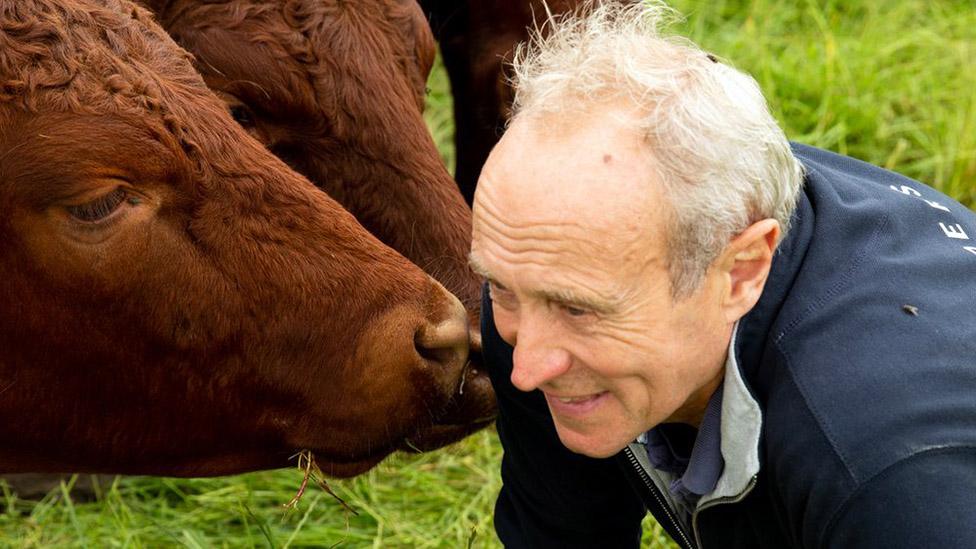Former Red Arrows pilot joins farmer on carbon quest
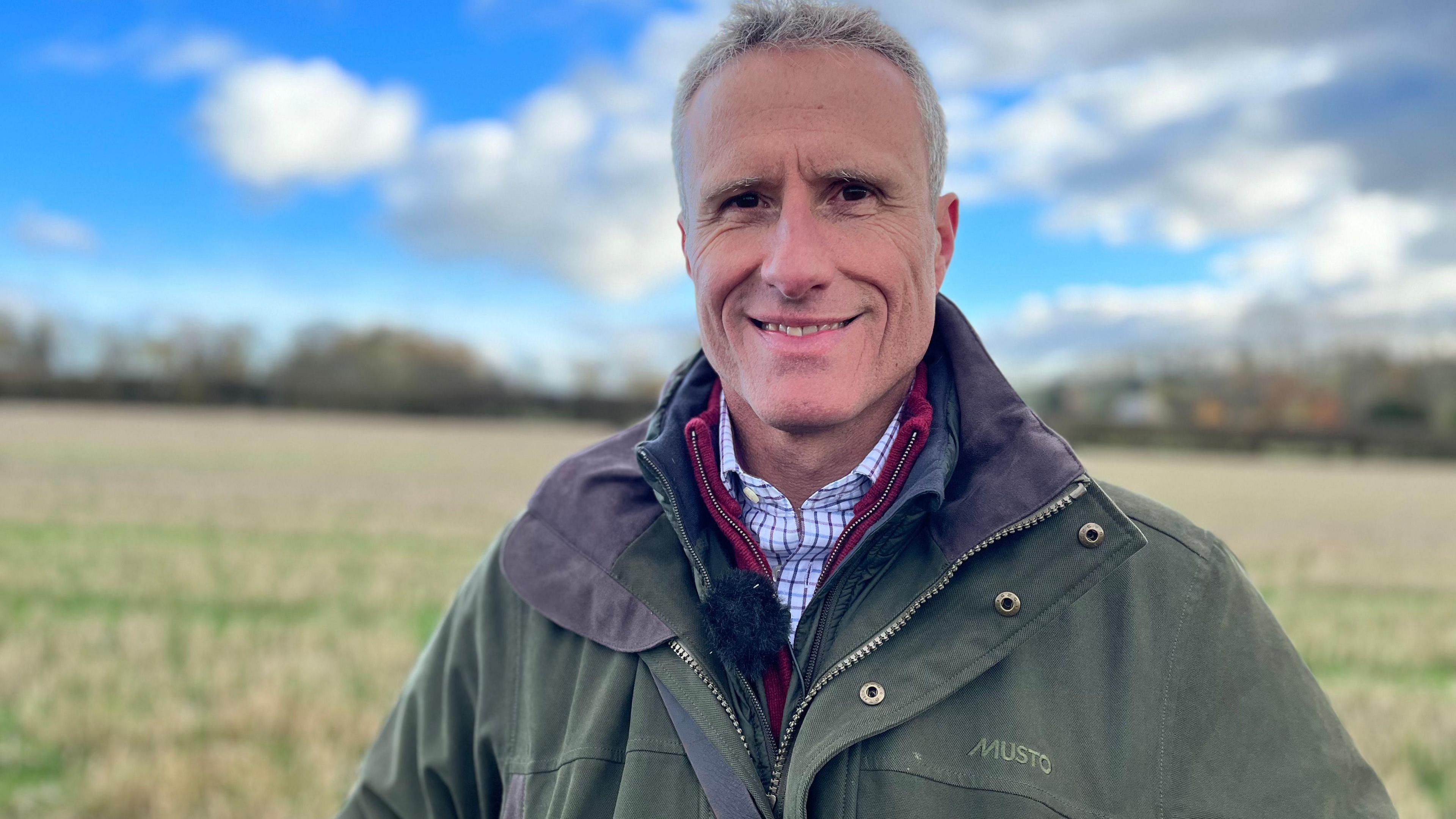
David Wright founded his own agricultural technology firm
- Published
A Leicestershire farmer has joined forces with a former Red Arrows pilot to turn his fields into a huge "carbon sponge".
Estate owner Hylton Murray-Philipson and climate technologist David Wright are developing an accurate measuring system to test the most effective ways to grow food and capture carbon.
David sends soil samples to a laboratory where they are burned at more than 1,000°C to measure how much carbon dioxide is released.
Traditional farming practices like deep ploughing can release stored carbon from soil, but less intensive methods may reverse the process and slow down climate change.
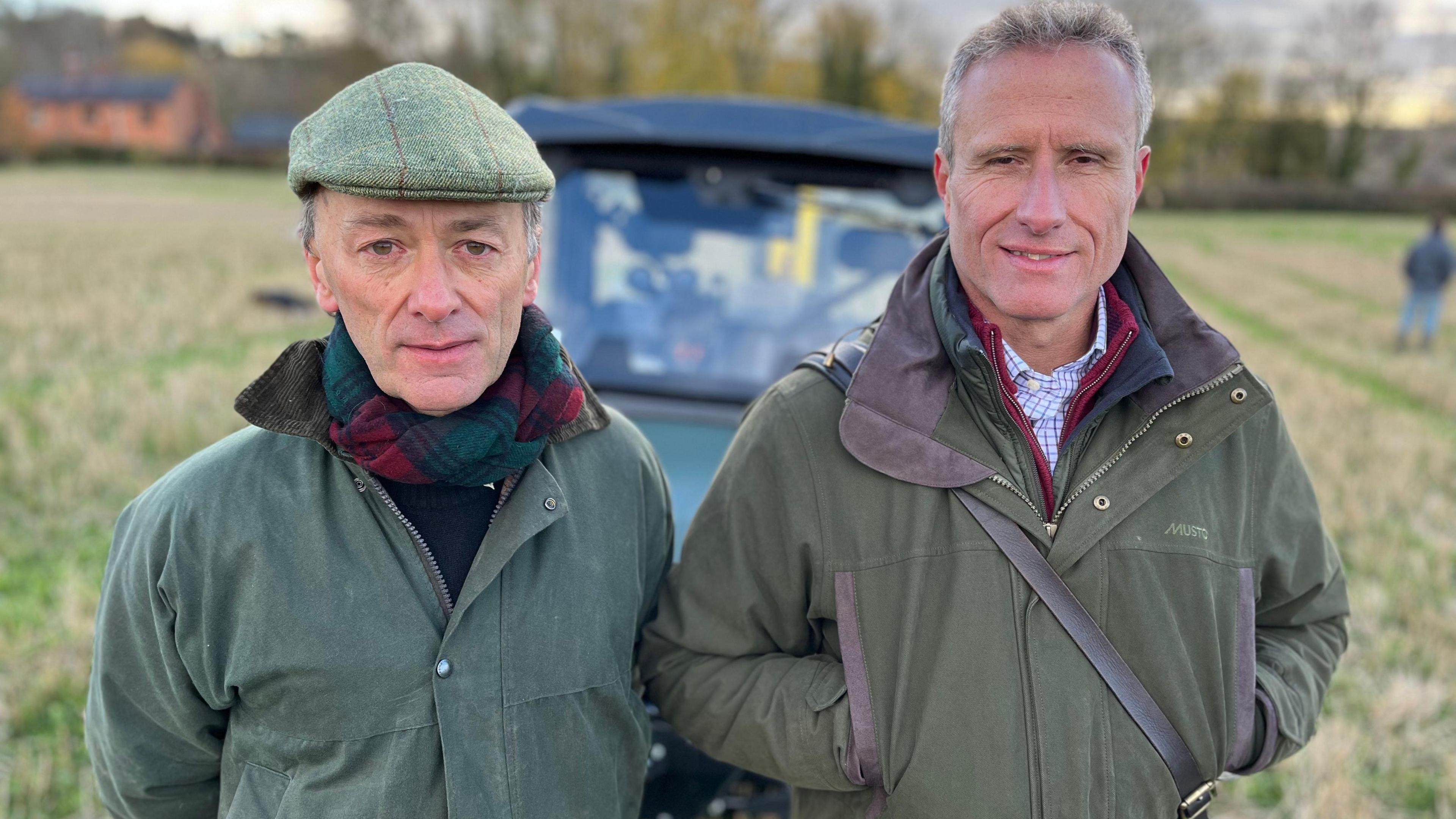
Hylton Murray-Phillipson and David Wright work as a team
The idea of paying farmers to soak up carbon in their soils has been around for a while.
But finding a system which accurately measures whether sustainable farming has made a difference from one year to the next is challenging.
"We cannot possibly remove the whole field and send it to the laboratory," said David Wright, founder of agri-technology company ecometric.
"So we have to be very intelligent about where and how we take samples to capture the variability [in soils]".
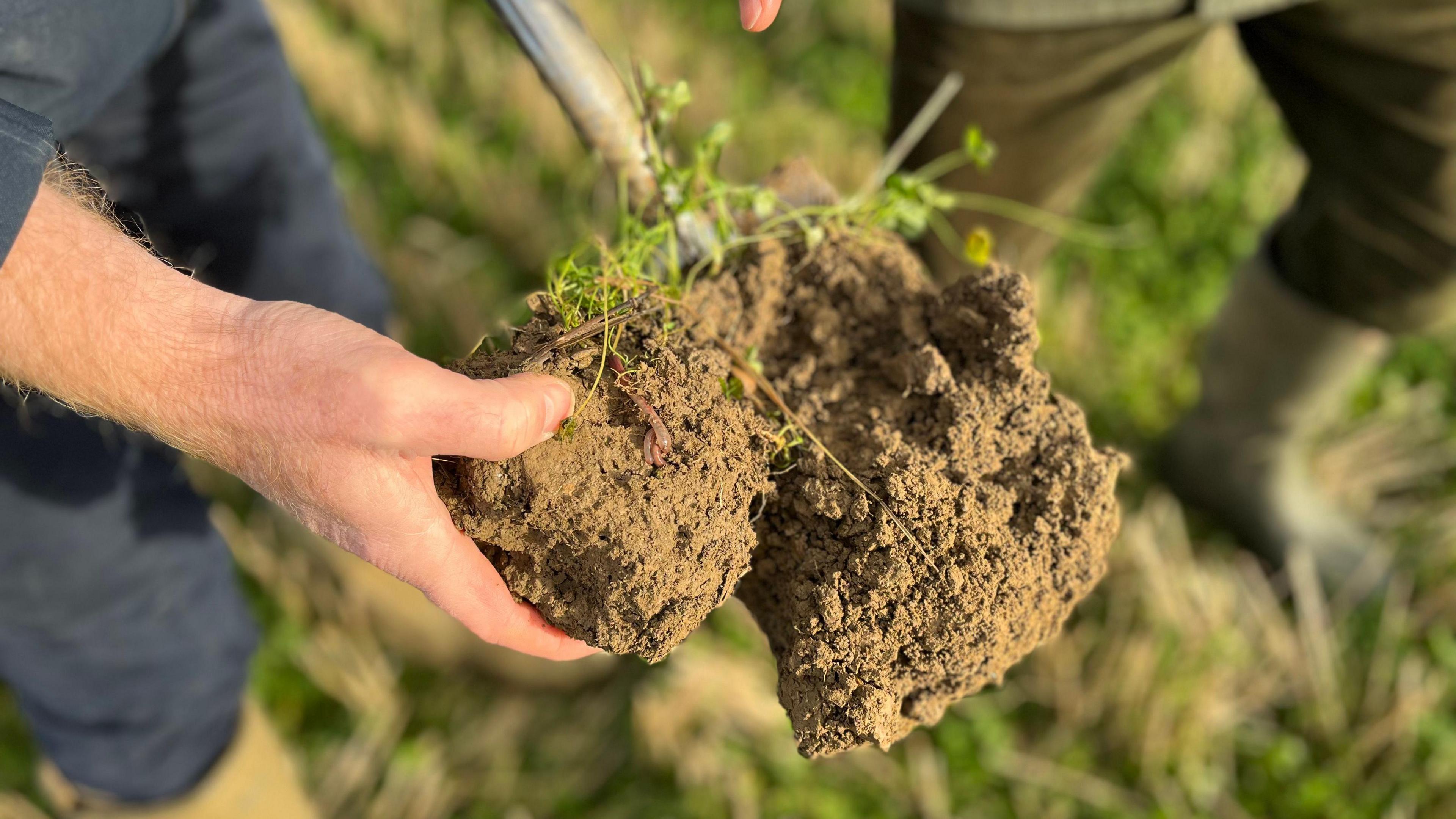
Cover crops can capture carbon in their roots
Mr Wright's search for accuracy starts with a soil sampling rig, which crawls across Mr Murray-Phillipson's land drilling a series of 30cm holes at carefully measured intervals.
The resulting soil samples are sent for laboratory incineration to discover how much carbon dioxide they are storing.
"It's about measuring the outcome," he said. "We cannot move a system forward unless we accurately quantify what has happened.
"It's a small piece of the jigsaw, but it's been missing."
As a father of two teenagers, David says his career change from military aviation to agro-technology, was largely motivated by his concern that his boys "have a climate to inhabit".
He said: "If we don't turn the corner by the end of the decade then we are really in trouble. But this is a real good news story."
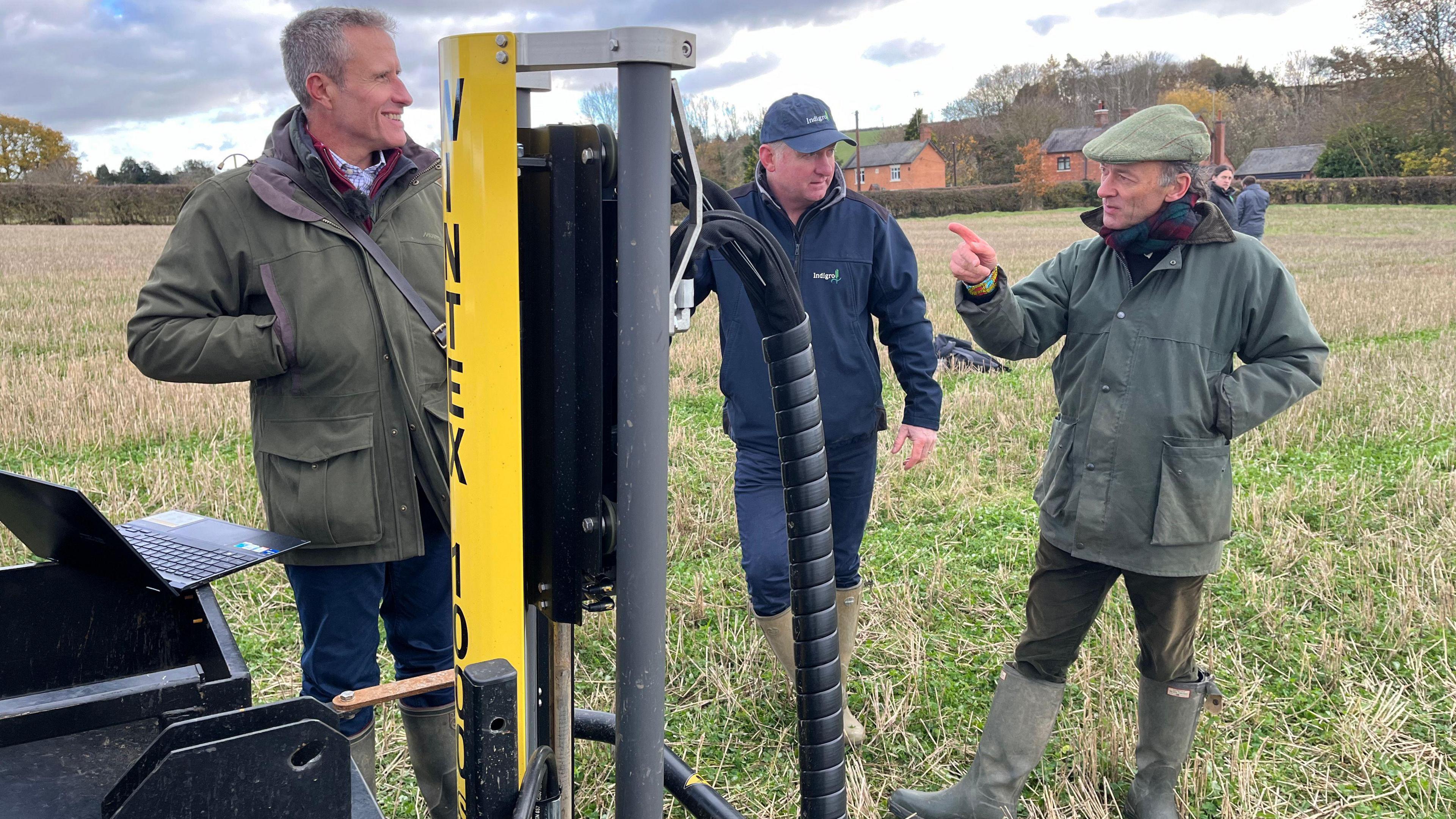
The pair use a rig to drill down for soil samples
Estate owner Hylton Murray-Phillipson said he had become concerned about how much his family's intensively cultivated farm in Blaston, Leicestershire was contributing to climate change.
He worked with agronomist, Roger Davis, to plant year-round cover crops and introduce sheep and cattle whose manure helps to reduce the farm's use of artificial fertilisers.
They learned how improved soil health encourages more worms, which mix the soil, and help turn the land into a sponge for carbon.
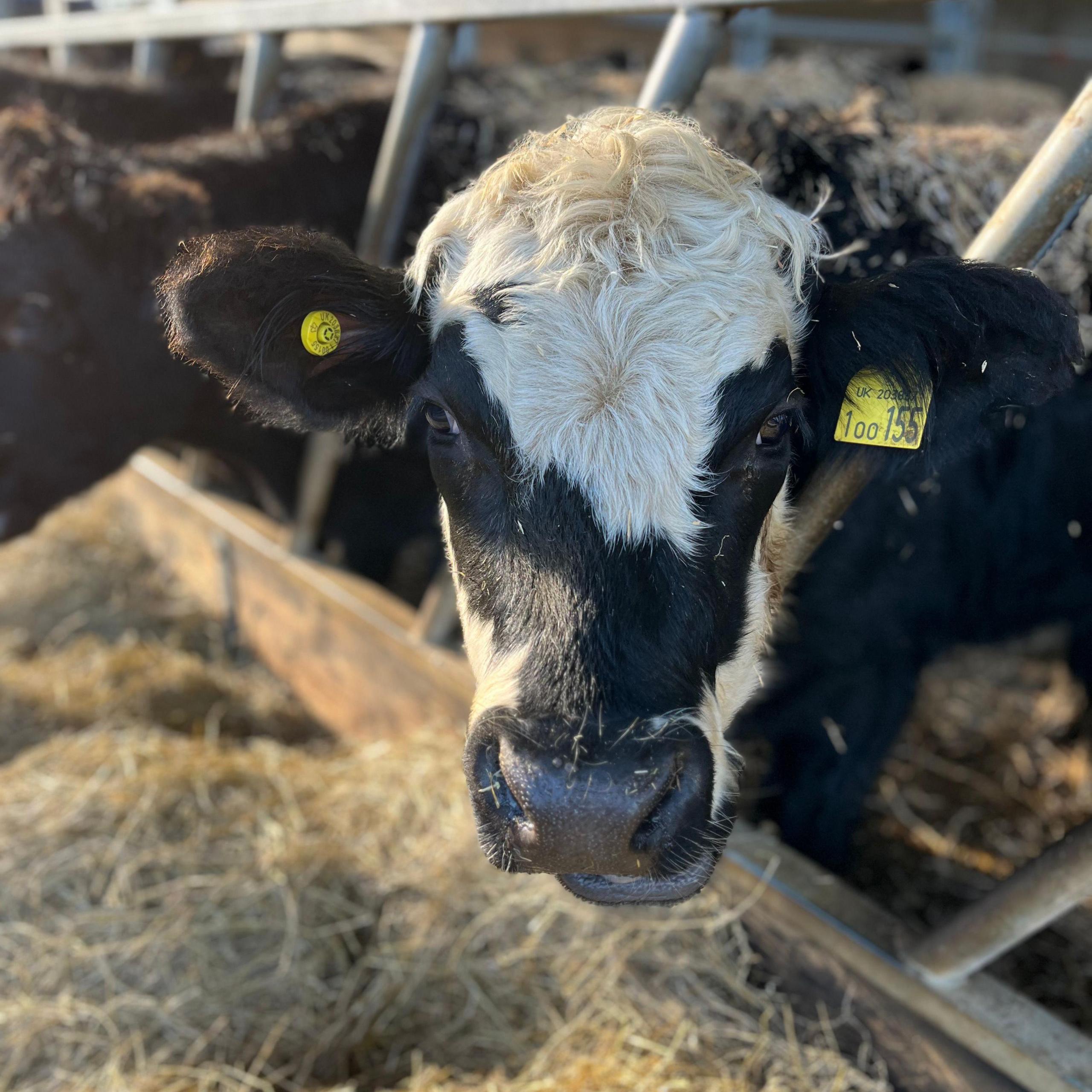
Grazing livestock can help fertilise farmland
Scientists know very small changes to the carbon trapped in agricultural soil may add up to a huge difference for the atmosphere.
Mr Wright says Mr Murray-Phillipson's carefully managed soil is already soaking up more than ten tonnes of carbon dioxide equivalent per hectare.
Mr Murray-Phillipson added: "What we've demonstrated here is a financial viability for a more sustainable way of farming."
"I think we can contribute to food security, but also to climate security, so it really is a message of hope for the future."
Follow BBC East Midlands on Facebook, external, on X, external, or on Instagram, external. Send your story ideas to eastmidsnews@bbc.co.uk, external
Related topics
Related stories
- Published9 July 2021
